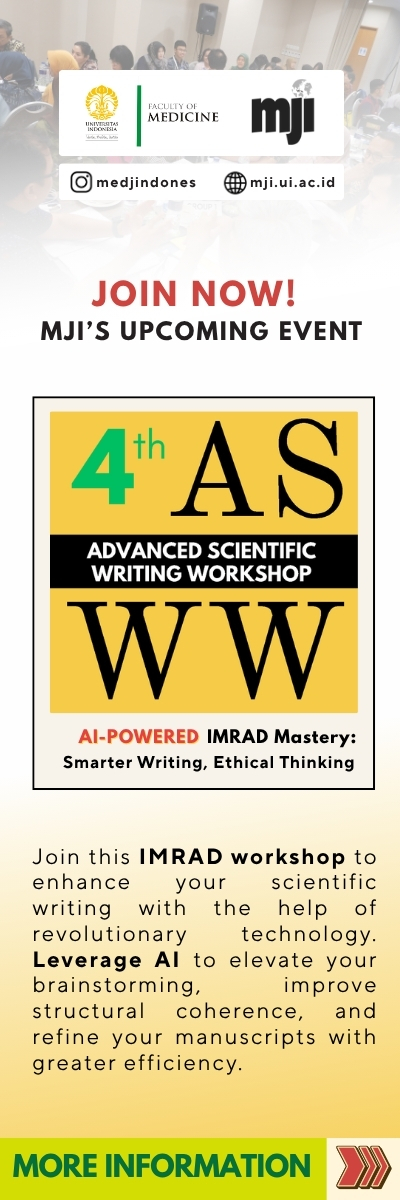Αlpha-thalassemia genotypes in Vietnam: a report of 12,030 pregnant women and their husbands performing prenatal screening for alpha-thalassemia
DOI:
https://doi.org/10.13181/mji.oa.236635Keywords:
alpha-thalassemia, hemoglobin, mutation, prenatal diagnosisAbstract
BACKGROUND Αlpha (α)-thalassemia is a global health concern, and improving screening methods is crucial for disease prevention. This study aimed to assess α-thalassemia genotypes and evaluate the effectiveness of various thresholds for mean corpuscular volume (MCV) and mean corpuscular hemoglobin (MCH) in prenatal screening for α-thalassemia.
METHODS This cross-sectional study included pregnant women and their husbands who underwent prenatal screening for thalassemia at the National Hospital of Obstetrics and Gynecology, Vietnam from January 2012 to August 2021. Blood samples were collected and analyzed using the strip assay technique, which can detect 21 common mutations in the α-globin gene and 22 common mutations in the beta-globin gene.
RESULTS Of the 12,030 participants, 931 were identified as having α-thalassemia, with --SEA, -α3.7, and -α4.2 being the most common mutations. When examining different thresholds of MCV and MCH, MCV <85 fL and MCH <28 pg had a lower missing rate than MCV <80 fL and MCH <27 pg, respectively. MCH <28 pg showed the highest sensitivity in screening for α-thalassemia. MCV <85 fL showed the lowest positive predictive value (PPV). The combination of MCV <80 fL and MCH <27 pg showed the lowest sensitivity in screening for α-thalassemia but the highest PPV among all thresholds.
CONCLUSIONS Optimizing the screening methods for α-thalassemia is important for preventing and managing the disease in the community. These findings have important implications for thalassemia prevention and management programs and may contribute to reducing the burden of thalassemia in the global population.
Downloads
References
Thalassemia Internation Federation. Annual report 2013. Thalassemia Internation Federation; 2013 [cited 2022 Dec 10]. Available from: https://thalassaemia.org.cy/download/2013-annual-report/.
Angastiniotis M, Lobitz S. Thalassemias: an overview. Int J Neonatal Screen. 2019;5(1):16. https://doi.org/10.3390/ijns5010016
Harteveld CL, Higgs DR. A--thalassaemia. Orphanet J Rare Dis. 2010;5:13. https://doi.org/10.1186/1750-1172-5-13
Needs T, Gonzalez-Mosquera LF, Lynch DT. Beta thalassemia. 2022. In: StatPearls. Treasure Island: StatPearls Publishing; 2022.
Choudhry VP. Economic burden of transfusion dependent thalassemia. Indian J Pediatr. 2018;85(5):329-30. https://doi.org/10.1007/s12098-018-2642-z
Shafie AA, Wong JHY, Ibrahim HM, Mohammed NS, Chhabra IK. Economic burden in the management of transfusion-dependent thalassaemia patients in Malaysia from a societal perspective. Orphanet J Rare Dis. 2021;16(1):157. https://doi.org/10.1186/s13023-021-01791-8
Farashi S, Harteveld CL. Molecular basis of a-thalassemia. Blood Cells Mol Dis. 2018;70:43-53. https://doi.org/10.1016/j.bcmd.2017.09.004
Vichinsky EP. A thalassemia major--new mutations, intrauterine management, and outcomes. Hematology Am Soc Hematol Educ Program. 2009:35-41. https://doi.org/10.1182/asheducation-2009.1.35
Weatherall DJ, Clegg JB. Inherited haemoglobin disorders: an increasing global health problem. Bull World Health Organ. 2001;79(8):704-12.
Nguyen TV, Van Nguyen Le K, Pham VH, Nguyen TT, Le LK, Le KK, et al. AB157. Evaluation of thalassemia screening program by using red blood count in pregnant women at Hung Vuong Hospital, Ho Chi Minh City, Vietnam. Ann Transl Med. 2015;3(Suppl 2):AB157.
Jomoui W, Fucharoen G, Sanchaisuriya K, Charoenwijitkul P, Maneesarn J, Xu X, et al. Genetic origin of a0-thalassemia (SEA deletion) in Southeast Asian populations and application to accurate prenatal diagnosis of Hb Bart's hydrops fetalis syndrome. J Hum Genet. 2017;62(8):747-54. https://doi.org/10.1038/jhg.2017.41
Tamary H, Dgany O. Alpha-thalassemia. 2005 [updated 2020 Oct 1]. In: Adam MP, Mirzaa GM, Pagon RA, Wallace SE, Bean LJH, Gripp KW, Amemiya A, editors. GeneReviews® [Internet]. Seattle: University of Washington, Seattle; 1993-2023.
Nong Van Uyen, Tran Danh Cuong. Initial research on identifying some causes of non-immunity hydrops fetalis. J Obstet Gynecol. 2016;14(1):22-5.
Nguyen Khac Han Hoan. Research on screening and prenatal diagnosis of a- and beta thalassemia. University of Medicine and Pharmacy, Ho Chi Minh City; 2013.
Vu Thi Bich Huong, Tran Tuan Anh, Vu Dinh Hung. Survey on a-thalassemia gene carrier status and prenatal diagnosis for those who come to consult at Thalassemia Center National Institute of Hematology and Blood Transfusion. Vietnam Medical Journal. 2016;448(November-special):53-9.
Vu Hai Toan, Nguyen Thi Thu Ha, Bach Quoc Khanh. Initial analysis of some indicators in community thalassemia screening. Vietnam Medical Journal. 2018;466(May-special).
Srisuwan W, Tatu T. Diagnosis of thalassemia carriers commonly found in Northern Thailand via a combination of MCV or MCH and PCR-based methods. J Assoc Med Sci 2013;46(1):22-32.
Xu XM, Zhou YQ, Luo GX, Liao C, Zhou M, Chen PY, et al. The prevalence and spectrum of a- and beta thalassaemia in Guangdong Province: implications for the future health burden and population screening. J Clin Pathol. 2004;57(5):517-22. https://doi.org/10.1136/jcp.2003.014456
Zhao P, Wu H, Weng R. Molecular analysis of hemoglobinopathies in a large ethnic Hakka population in southern China. Medicine (Baltimore). 2018;97(45):e13034. https://doi.org/10.1097/MD.0000000000013034
Azma RZ, Ainoon O, Hafiza A, Azlin I, Noor Farisah AR, Nor Hidayati S, et al. Molecular characteristic of a- thalassaemia among patients diagnosed in UKM Medical Centre. Malays J Pathol. 2014;36(1):27-32.
Musallam KM, Rivella S, Vichinsky E, Rachmilewitz EA. Non-transfusion-dependent thalassemias. Haematologica. 2013;98(6):833-44. https://doi.org/10.3324/haematol.2012.066845
Singer ST. Variable clinical phenotypes of a--thalassemia syndromes. Sci World J. 2009;9:615-25. https://doi.org/10.1100/tsw.2009.69
Kohne E. Hemoglobinopathies: clinical manifestations, diagnosis, and treatment. Dtsch Arztebl Int. 2011;108(31-32):532-40.
Published
How to Cite
Issue
Section
License
Authors who publish with Medical Journal of Indonesia agree to the following terms:
- Authors retain copyright and grant Medical Journal of Indonesia right of first publication with the work simultaneously licensed under a Creative Commons Attribution-NonCommercial License that allows others to remix, adapt, build upon the work non-commercially with an acknowledgment of the work’s authorship and initial publication in Medical Journal of Indonesia.
- Authors are permitted to copy and redistribute the journal's published version of the work non-commercially (e.g., post it to an institutional repository or publish it in a book), with an acknowledgment of its initial publication in Medical Journal of Indonesia.





































